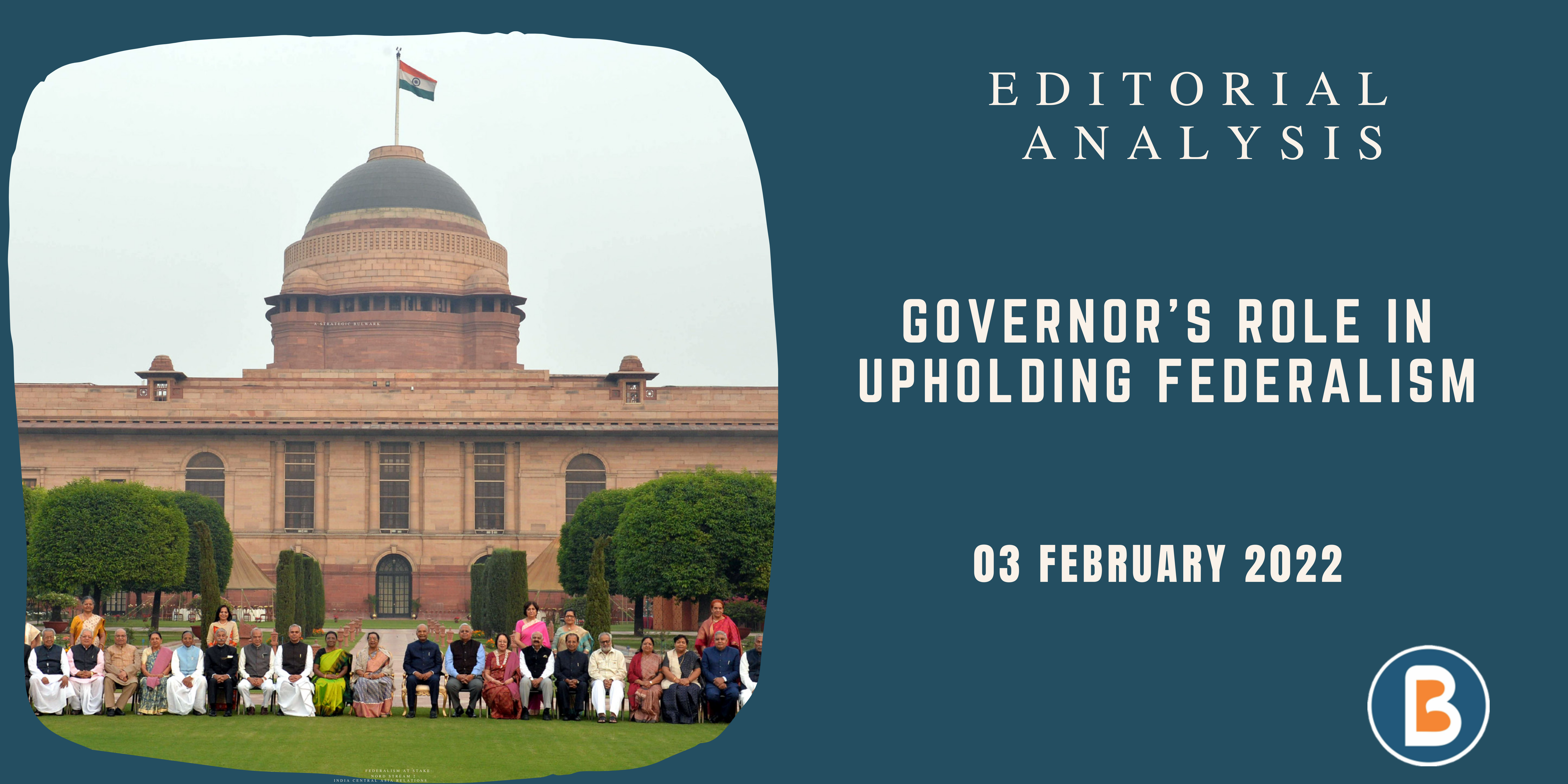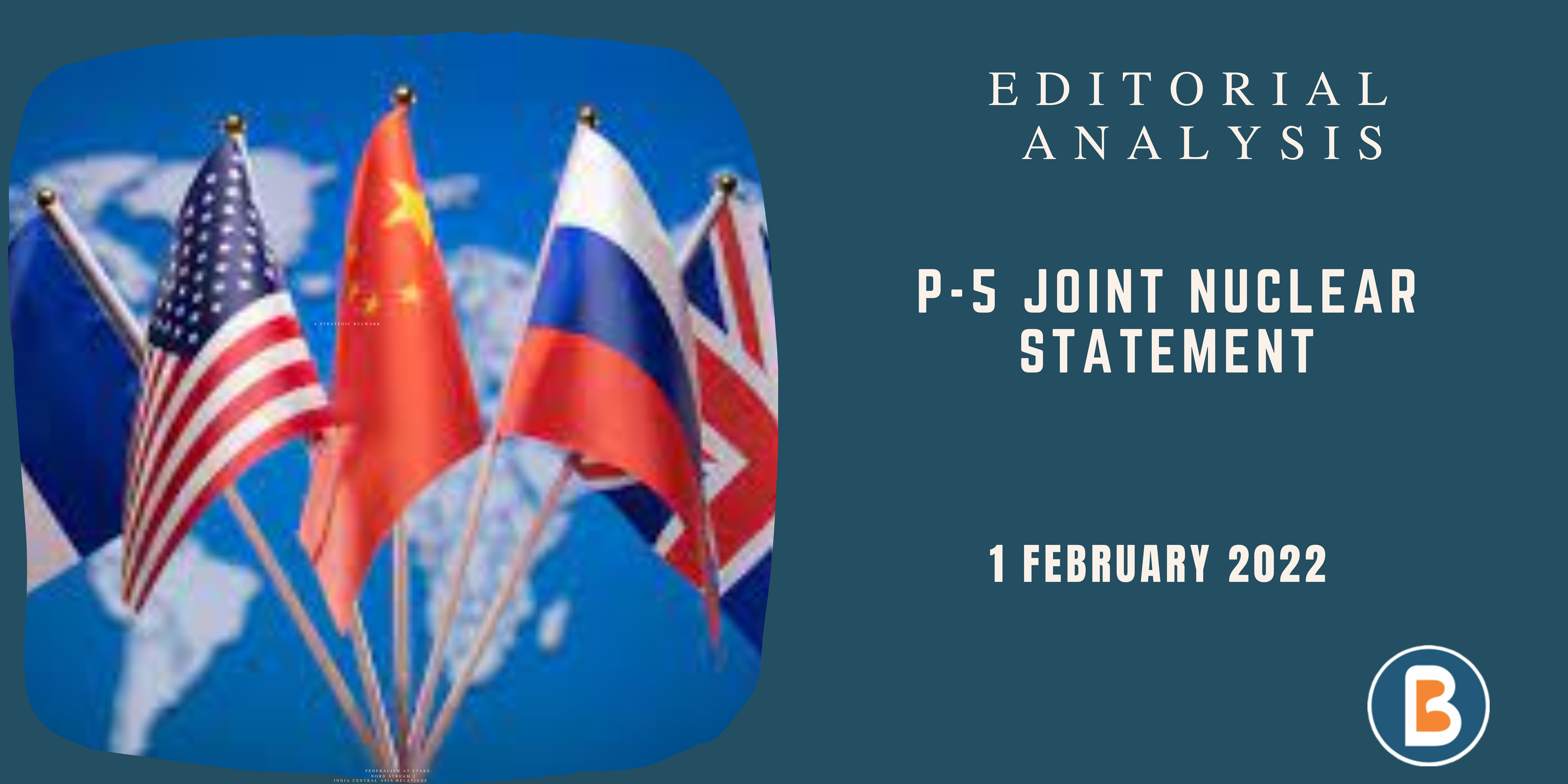Governor’s Role in Upholding Federalism
Context:
- West Bengal Chief Minister Mamata Banerjee’s outburst against Governor Jagdeep Dhankhar on Monday was not a first but it brought to the fore, yet again, the role of the Governor in relation with the elected government and legislature.
- Dhankhar and his counterparts in Tamil Nadu and Maharashtra appear to be testing the limits of their power and confronting the elected governments and legislatures in recent weeks.
- He has withheld assent to the Howrah Municipal Corporation (Amendment) Bill 2021, delaying polls to the civic body
Background:
- Part VI of the Constitution of India deals with the state executive. The state executive consists of the governor, the chief minister, the council of ministers and the advocate-general of the state
- Governor is the nominal head at the state level
Appointment of governors
-
- The governor is appointed by the president under his hand and seal
- The SC in 1979 said that the office of governor is not an employment under the central government. It is an independent constitutional office and is not under the control of or subordinate to the central government
Immunity
- He enjoys personal immunity from legal liability for his official acts
- During his term of office, he is immune from any criminal proceedings, even in respect of his personal acts. He cannot be arrested or imprisoned
- However, after giving two months’ notice civil proceedings can be instituted against him during his term of office in respect of his personal acts
- The oath of office to the governor is administered by the Chief Justice of the concerned High Court
Term of governor’s office
- He holds the office for a term of five years
- However, his term is subjected to the pleasure of the President
- The constitution has not laid down any grounds for the removal of the governor by president
- A governor can also hold office beyond his term until his successor assumes charge
Powers:
- Can dissolve the legislative assembly if the chief minister advices him to do following a vote of no confidence. Following which, it is up to the Governor what he/ she would like to do.
- Can recommend the president about the failure of the constitutional machinery in the state.
- Can reserve a bill passed by the state legislature for president’s assent.
- Can appoint anybody as chief minister If there is no political party with a clear-cut majority in the assembly.
- Determines the amount payable by the Government of Assam, Meghalaya, Tripura and Mizoram to an autonomous Tribal District Council as royalty accruing from licenses for mineral exploration.
- Can seek information from the chief minister with regard to the administrative and legislative matters of the state.
- Can refuse to sign to an ordinary bill passed by the state legislature.
Concerns Associated:
- Appointment of Governor: Article 155 says that governor should be appointed (not elected) from amongst persons of high status with eminence in public. The elected government at the state is not even consulted while making appointment of the Governors.
- Appointment and dismissal of the Chief Minister: Governor appoints Chief Minister, other ministers, Advocate General, Chairmen and members of the State Public Service Commission in the state. After elections in the state, there is a convention to invite the largest party to form government in the state. This convention has been flouted many times at the whim of the governor. E.g.: the recent episode of Karnataka after 2018 hung assembly elections.
- Reservation of Bills for Consideration of President: As per Article 200 of the Constitution, the governor can reserve certain types of bills passed by the State Legislature for the President’s consideration. The President can either give assent to it or ask the governor to send it back for the state legislature to reconsider it, along with his comments. The chief intent of this provision is for the centre to keep a tab on the legislation in the interest of the nation. However, the central government, through the office of the governor, has used this provision to serve partisan interests.
- Misuse of Article 356: Article 356 is the most controversial article of the Constitution. It provides for State emergency or President’s rule in State if the President, on receipt of report from the Governor of a State or otherwise, is satisfied that a situation has arisen in which the Government of the State cannot be carried on in accordance with the provisions of the Constitution. The duration of such emergency is six months and it can be extended further. In the Constituent Assembly, Ambedkar had made it clear that the Article 356 would be applied as a last resort. He also hoped that” such articles will never be called into operation and that they would remain a dead letter.”
- Removal of the Governor: Article 156 says that the governor will hold office during the pleasure of the President for five years. President works on aid and advice of the Council of Ministers under Article 74. In effect it is the central government that appoints and removes the Governors. The governor has no security of tenure and no fixed term of office. E.g.: The mass changing of the governors of state whenever a new government comes to power at Centre.
.
Way forward
- The recommendations of the Sarkaria Commission and the Punchhi Commission report need to be examined closely to make proper amendments to the functions of the post of governor.
Source: THE HINDU.




